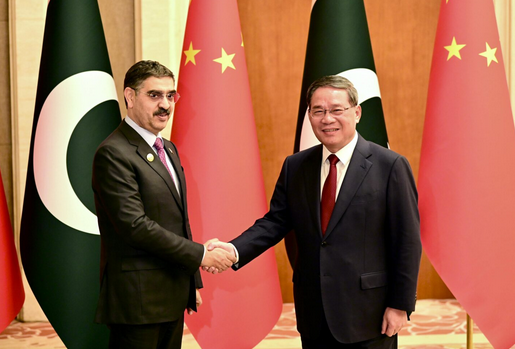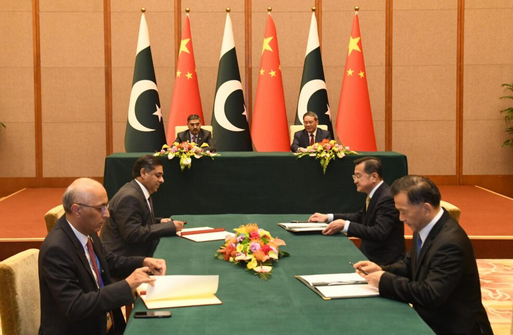Beijing (Web Desk): Pakistan and China on Wednesday agreed to further strengthen high-level dialogue and engagement besides deepening the political, economic, education, science & technology, cultural, and people-to-people relations.
This commitment was reached during a meeting between Caretaker Prime Minister Anwaar-ul-Kakar and Chinese Premier Li Qiang at the sidelines of Third Belt and Road Forum (BRF) in Beijing, the Radio Pakistan reported.
Accompanied by the ministers and senior officials, the two leaders reaffirmed the time-tested and iron-clad friendship between Pakistan and China.
PM Kakar extended felicitations to the Chinese leadership on the successful holding of the Third Belt and Road Forum.
Noting the depth and breadth of the Belt and Road Initiative (BRI), the Prime Minister termed it as a project of immense significance for the world in terms of connectivity and shared prosperity.
The two leaders discussed bilateral collaboration in the context of the China-Pakistan Economic Corridor (CPEC) and prospects of further deepening economic linkages.
PM Kakar underscored the importance of CPEC for Pakistan's economy and noted with satisfaction its expansion into new areas of development, including industrial development, livelihood projects, IT, mining and minerals exploration and agriculture.
He expressed the confidence that Chinese investment in Specialised Economic Zones (SEZs) would contribute in diversification of Pakistan's export basket and expansion of its industrial base.
Premier Li Qiang underlined the steady growth of bilateral cooperation and noted the positive momentum of the CPEC projects. He hoped that leadership consensus would give further boost to trade and economic relations between the two countries.
The two prime ministers also witnessed the signing ceremony in which several Memorandums of Understanding (MOUs) and agreements were signed in various areas.
These agreements include cooperation in commerce, communication and transport, including ML-I, connectivity, food security and research, media exchanges, space cooperation, urban sustainable development, capacity building, mineral development and industrial cooperation, climate change, and vaccine development.




